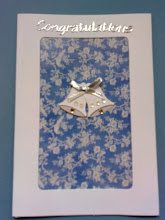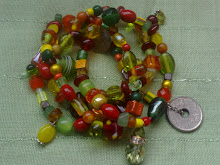As I looked out from the rooftop of my grandfather’s house, I could see that others from surrounding houses had also climbed up onto their rooftops to watch. We all looked down to the main road and the jeep with the five straight-backed old men sitting in the back facing each other. All dressed in white with waistcoats of grey or brown and with white turbans with crisp starched shamla’s. Solemn, proud, unified.
One of those men was my grandfather, the rest were his brothers. They were gathered to travel to the funeral of a “panchara”, the Punjabi term for a friend and ally on the local Council. They were all in their 90’s, with one approaching 100. People had come out to see the five brothers together, knowing this would likely be the last time.
They were known to be the five fingers of one hand. Watching each other’s backs and fighting each others battles as young men. No-one dared to mess with these brave but harsh brothers, who would watch each other’s homes and land and dare anyone to take them on.
The oldest was Muhammad Sher. A man who spent his whole life drifting along in a dream-like state, a poet who traveled to Jhelum to see Allama Iqbal, Pakistan’s national poet and memorized all of his poems. He fought in Burma for the British and spent years in a jail in Malaysia. On his return he made best friends with my husband’s grandfather and the two became known as the local likely lads. He died aged 104, slipping away as quietly as he lived
Lal Hussain, was the second son, the leader of the pack and my beloved grandfather. His whole life was about struggle. His powerful spirit meant he lived life on a larger scale. He fought in Burma alongside Muhammad Sher and came back decorated (my gran sold his medals to a traveling Pushtun as scrap metal for a handful of dried dates.). He fought against poverty through farming the land, through trade and eventually through migration to Britain. Like his brothers he was trained by his father in the use of the gandhasa (long stick with axe on the end) and never stepped back from a good punch-up including one on Eid day at aged 88). I just remember him as my hot-tempered, loving, generous wada-abba (big-dad). He went back to Pakistan and died sitting at his table aged 92 after a walk round the village he so loved. More than 1000 people attended his funeral. We all pray for him everyday still.
Saudager is the quiet brother, doing his duty, watching the families and homes of those abroad. He spent his life watching his children like a hawk, tilling his land and getting by. If you visit him now, you’ll find him sitting in his yard engaged in an intense game of Ludo playing for all four sides, getting up to change position with each throw of the dice.
Shafi is the fourth brother, the master politician of the family; a petite man with a big intellect. He and Haq Daad were the two that got sent to school, a rarity in those days. He served as a Councillor and people were quick to say that he had the Police in one pocket and the Panchayat (village council) in the other. He’s even littler now and stooped, but still walks with a swift stride despite the stick in his hand, and if you look him in the eye, his sharp intelligence still shines through. He is a successful farmer now living his last days out on the land he loves.
Haq Dad is the youngest, the baby of the family. Best friend of Lal Hussain, he has always been a trader at heart, regularly visiting Peshawar and Quetta. His home has always been full of children, hustle, animals and friends. The ladies have always had an eye for him and he has married three times (two of his wives died) and has thirteen children. Despite his strictness, his children are loyal and love him and have been blessed the most in terms of deen.
The five brothers also had a sister; Rasulan Bhi. A simple old lady that died a few years ago after a life of difficulty, sacrifice, poverty and childlessness. I remember her feeding her chickens used tea leaves. Sad but serene.
The brothers fought the world and sometimes each other, they lived through poverty and separation but let nothing in this world beat them. Despite their arguments and sulks, they stood together in the end. They taught me that the ties of blood are so powerful that they pull you back in the end wherever you are. We call this khoon ki kashish (the attraction of blood). The image of the old men in white sitting in the jeep will forever stay with me.
Allah Grant them all peace.
"Whoever believes in Allah and the Last Day, let him maintain the bonds of kinship" (Bukhari)Why did I start crying when I wrote this? Why do I still have tears in my eyes?


















 My better half is from Lahore and in contrast to our gentle Patwari, speaks the traditional Punjabi spoken in central Pakistan and Indian Punjab. To me this is a purer and more assertive Punjabi, passionate, bawdy and blunt; the language of Lahore’s wide-boys and sassy girls. Funnily enough, it reminds me of cockney English (one of my brother-in-laws’ friends saw me and asked who I was, he said "My brothers old lady" – I was 20!). When I try to speak it I can hear myself getting louder.
My better half is from Lahore and in contrast to our gentle Patwari, speaks the traditional Punjabi spoken in central Pakistan and Indian Punjab. To me this is a purer and more assertive Punjabi, passionate, bawdy and blunt; the language of Lahore’s wide-boys and sassy girls. Funnily enough, it reminds me of cockney English (one of my brother-in-laws’ friends saw me and asked who I was, he said "My brothers old lady" – I was 20!). When I try to speak it I can hear myself getting louder.
 The trick for me is to slot in all the big things and stick to the timing for them. Internet and herbal tea before work. Cuddles with the kids and catch-up with the better half as soon as I get home from work. Arabic with Little Lady before prayer and mealtime. Playtime for the kids and internet-time for me. Followed by the all-important bed-time routine for the kids and prayer and walk time for the grown-ups. Key for me is the absence of exact timings. There is nothing that induces an adrenaline-rush in me quicker than trying to race against the clock. This is fine for work or an exam, but not where children are involved. Children need to go at their own pace, and the only way to get them to do things promptly and in good time is not to hurry them, but to incorporate things into the routine of the family so that they do it as habit.
The trick for me is to slot in all the big things and stick to the timing for them. Internet and herbal tea before work. Cuddles with the kids and catch-up with the better half as soon as I get home from work. Arabic with Little Lady before prayer and mealtime. Playtime for the kids and internet-time for me. Followed by the all-important bed-time routine for the kids and prayer and walk time for the grown-ups. Key for me is the absence of exact timings. There is nothing that induces an adrenaline-rush in me quicker than trying to race against the clock. This is fine for work or an exam, but not where children are involved. Children need to go at their own pace, and the only way to get them to do things promptly and in good time is not to hurry them, but to incorporate things into the routine of the family so that they do it as habit.




























































